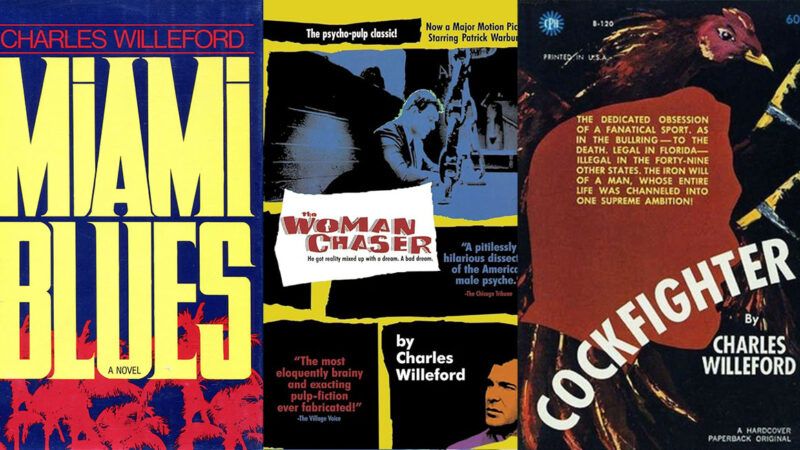Review: The Florida Novels of Charles Willeford
“Just tell the truth, and they’ll accuse you of writing black humor.”

Charles Willeford's novels were marketed as crime fiction, though many of them weren't mysteries and some treated their crimes almost as afterthoughts. Like a slapstick existential drama, they read as though someone set out to answer the question, "What if Dostoevsky had been funny?"
Willeford started his career in California, and several of his stories are set there. (One of my favorite Willeford books, 1960's The Woman Chaser, bears the unmistakable imprint of the used-car lots and low-budget studios of Los Angeles.) But once he settled into the Sunshine State, the Sunshine State settled into his work. When a person with Willeford's darkly comic sensibility finds himself in the land of Florida Man, he'll find it hard not to write about the place.
So Cockfighter (1962) tours the rural world of illegal Florida cockfighting, as seen through the eyes of a gamecock trainer who has taken a vow of silence. The Burnt Orange Heresy (1971) plants itself firmly in Palm Beach as it satirizes the art market. Miami Blues (1984) is a story about murder, robbery, and prostitution, but it's just as much about Miami's rough American jumble.
That last book proved popular, and readers seemed eager for more novels about its protagonist, a cop named Hoke Moseley. So Willeford promptly wrote a follow-up where Moseley commits one of the most repellent crimes possible. His agent refused to sell it, and Willeford resigned himself to producing a less self-destructive series of sequels; after decades of subsisting as a cult writer, the author spent his final years as a commercial success.
"Just tell the truth," Willeford liked to say, "and they'll accuse you of writing black humor." Going by that dark-laugh standard, Willeford wrote many truths indeed: about cops, crooks, preachers, artists, and humanity writ large.


Show Comments (7)